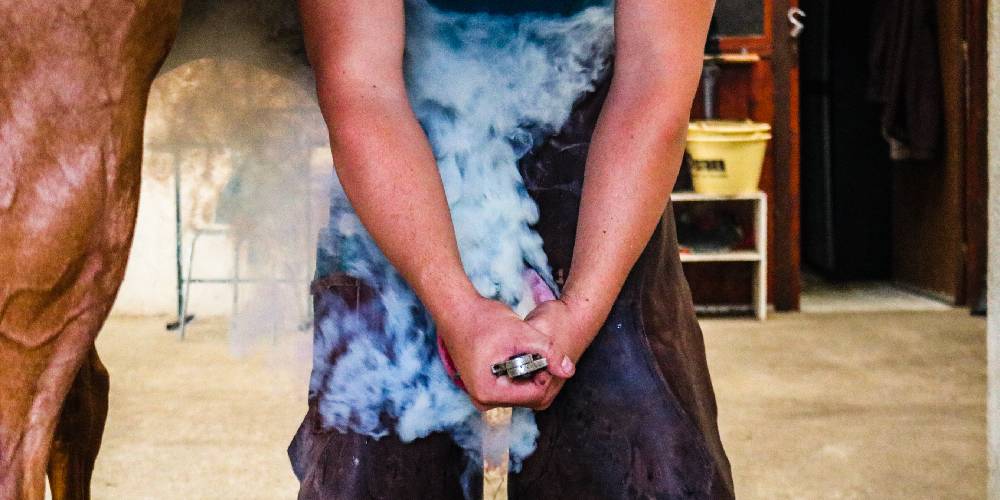Farriers are very important people who are responsible for trimming, cleaning, caring for, and shoeing your horse’s hoof. Having a good farrier is essential to your horse’s health. There is a saying that goes ‘no foot, no horse’ for a reason.
I have been asked what a farrier is and what they do several times now, so for those who don’t know, I wanted to come up with an easy explanation and definition for what a farrier is and what they do.
What Is A Farrier?
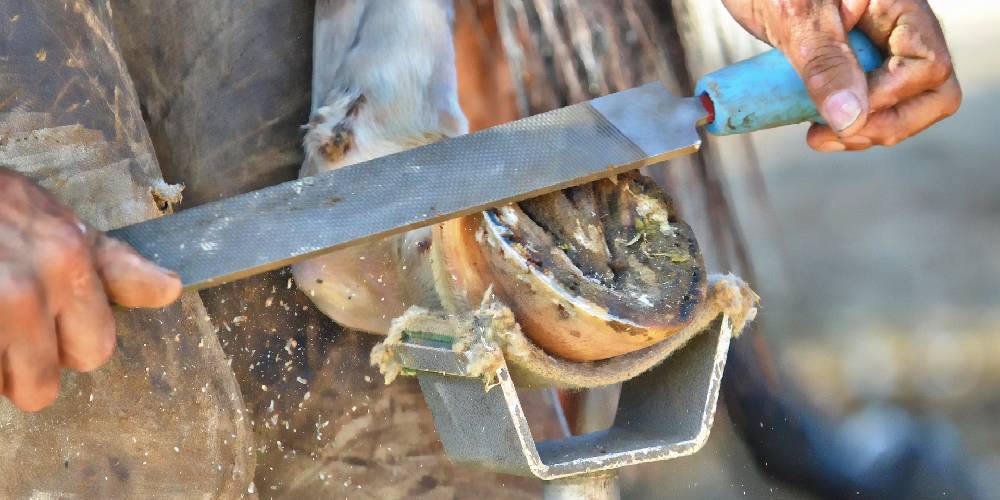
A farrier, sometimes known as a shoer or blacksmith, is someone who takes care of your horse’s feet. In a farrier appointment, a farrier may remove your horse’s old shoes, trim the hoof, file and remove all the dead hoof cells from the sole and hoof wall, and put new shoes on the horse. Farriers are people who will usually learn their trade through apprenticing other farriers and people in this line of work.
What Do Farriers Do?
In a typical appointment, farriers will do many things. Some of the things that a farrier may do include:
- Picking out the hoof
- Removing the old horse shoe
- Using a hoof knife to remove any dead sole from the horse’s hoof
- Filing the hoof
- Treating or patching any cracks or missing pieces of the hoof
- Putting new shoes on the horse
Is It Hard To Become A Farrier?
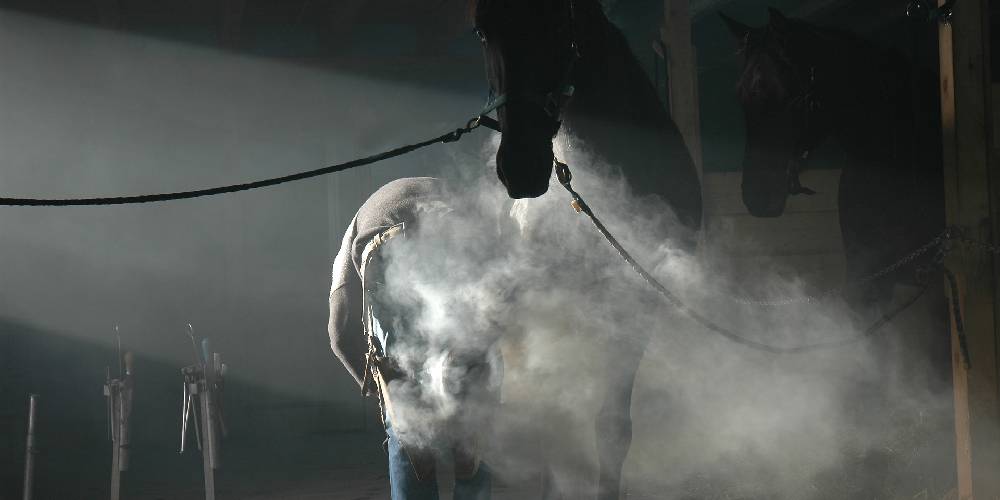
When talking to some of my farriers, they said that becoming a farrier is a long process full of learning and adjusting to strange circumstances.
To become a farrier, it can take many years of apprenticing a professional on the field before you have a confident feel of the trade and how to do the work.
Farriers not only need to know how to trim hooves and nail new shoes on the horse, but they also need to know how to handle special situations they might see when dealing with horses. Some special situations a farrier needs to be prepared for include:
- Thrush in horses
- Laminitis in horses
- A horse who is skittish and does not want to cooperate
- A horse who has never had their feet done before
- Kicking horses
- Biting horses
- Rearing horses
- Abscesses in the hooves
- Repairing the hoof after being worked on by a bad farrier
- Shoeing a horse who has a defect or other hoof/lower leg issue
- Knowing how to encourage a certain part of the hoof to grow (if a horse needs more heel in their hoof a horse needs to knoe how to trim and shoe a horse’s hoof in a certain way to encourage the growth of this certain part of the horse’s hoof)
Do All Farriers Charge The Same?
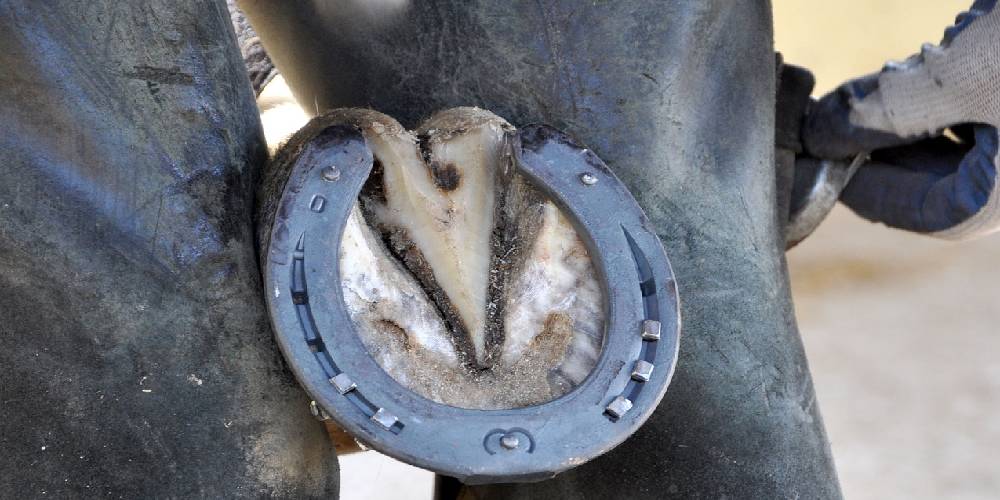
No! Farriers, depending on where you are located and what farriers you have available to you, there are so many different prices and services that different farriers offer.
For example, my old farrier charged me $60 (US dollars) to trim all four of my horse’s feet and put shoes on their front two feet. For this service now with my new farrier, it costs me $90 (US dollars) for him to do the same service as my old farrier did.
All farriers have different pricing, but there is something important to keep in mind.
Make sure you are NOT price shopping for a farrier. Going with the cheapest services could potentially mean that you are paying for a less skilled unprofessional farrier that may do a poor job. You most likely will need to pay for someone’s skills in this trade so usually, the more expensive farriers are going to be the better trained and more professional options rather than one who is charging a lot less. Ask clients of a farrier you are planning to work with and see what they have to say about this farrier before going ahead and using them on your horse.
What Services Do Farriers Provide That Are More Expensive Than Others?
There are many different specialty services that a farrier can do that will most likely cost more than an average service would cost. Some of these things that may cost more include:
- Colorful horse shoes
- Aluminum horse shoes
- Show horse shoes
- Weighted horse shoes
- Clipped horse shoes
- Corrective horse shoes
Having your farrier put on different shoes or special things on your horse’s hoof will cost a lot more than if they just put on standard shoes and provide you with standard services.
Why Do Horses Need Farriers?
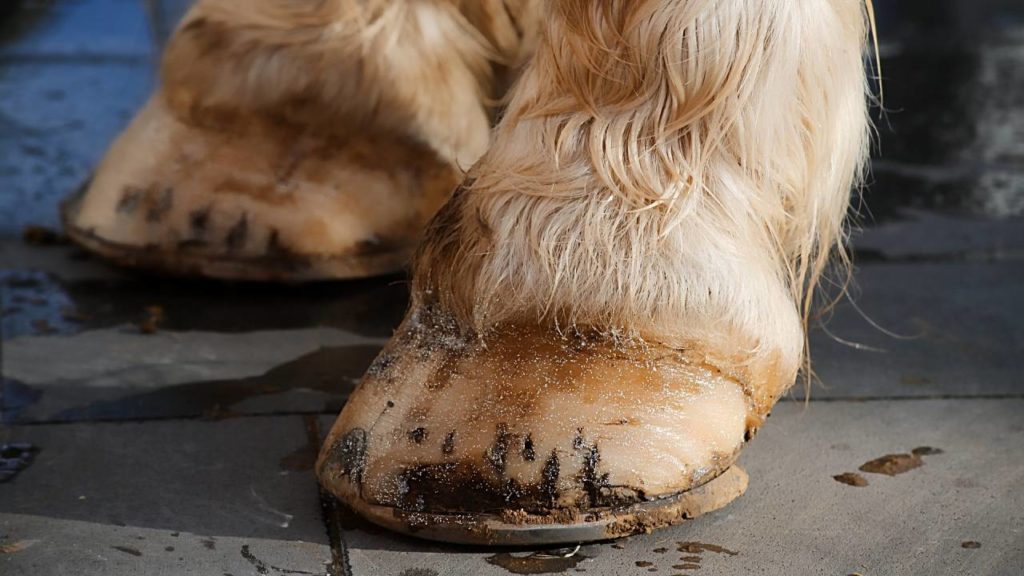
Unlike wild horses like mustangs or wild Asian horses, domesticated horses must rely on a farrier to keep their hooves at a healthy length.
Typically, shoes are put on horses to help them wear down their hooves less than they would without them. SHoes offer protection and support for horses and wearing them makes the hoof not as likely to crack, wear down too far, or suffer certain complications.
Offering the proper care to a horse is crucial for their health and survival. A horse who is treated by a bad farrier will likely have poor hoof condition and will suffer lameness issues somewhere down the road.
Why Is It Important To Have A Good Professional Farrier?
Paying for the services of a good professional farrier is important to make sure your horse is healthy and its hooves are being well managed and taken care of.
The last thing you want to happen is to pay for a farrier that seems to be offering a good deal only to learn that your farrier is not doing the job properly and has thus caused multiple hoof issues for your horse.
Paying for quality work is important to keep your horse sound and out of the way of lameness.
How Often Should A Farrier Come To Do My Horse’s Feet?
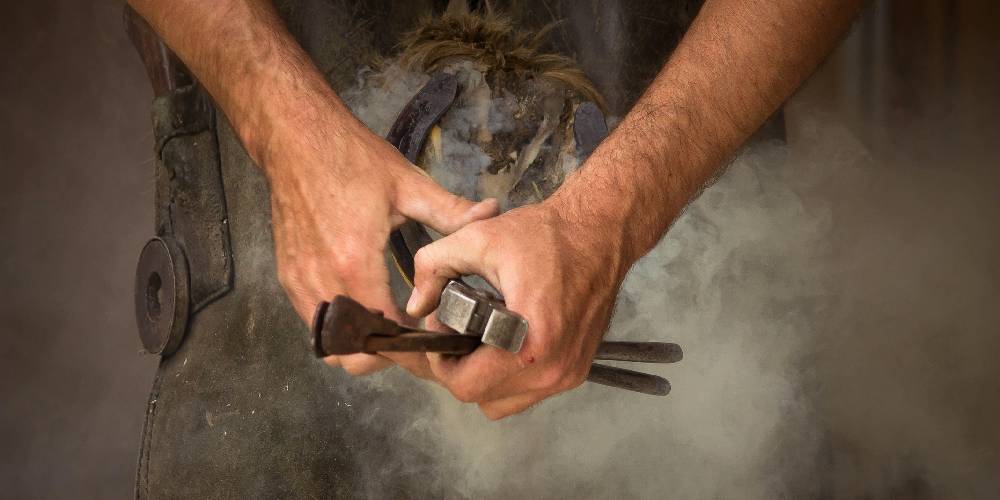
Farriers will often tell you when they think is a good idea for them to come out and shoe your horse again. Usually, horses need to have their feet done between every 4 and 8 weeks. If a horse is being ridden lightly and is in a good environment, 8 weeks is probably a good amount of time for your farrier to come and see your horse again.
If your horse is having hoof issues, is being ridden excessively, or is in a bad ground environment, every four weeks may be more suited to you.

